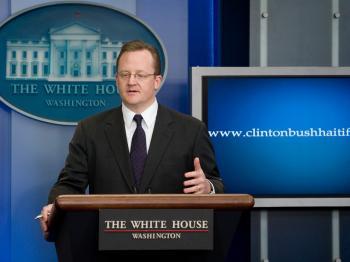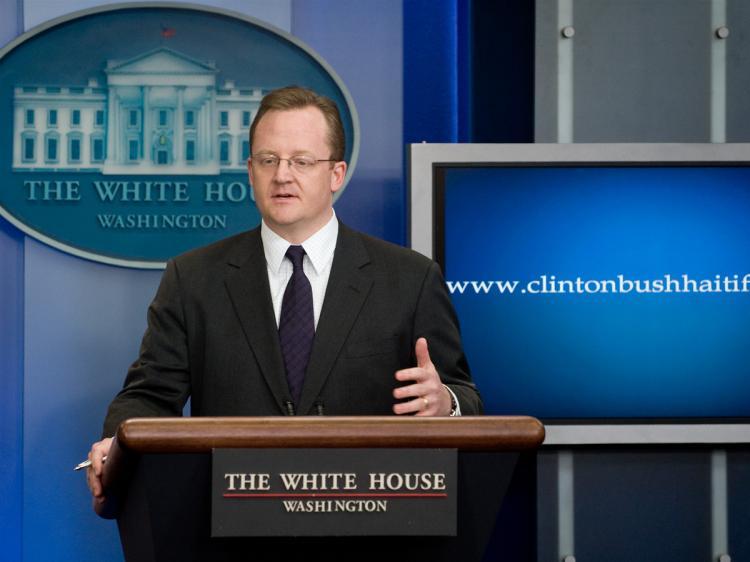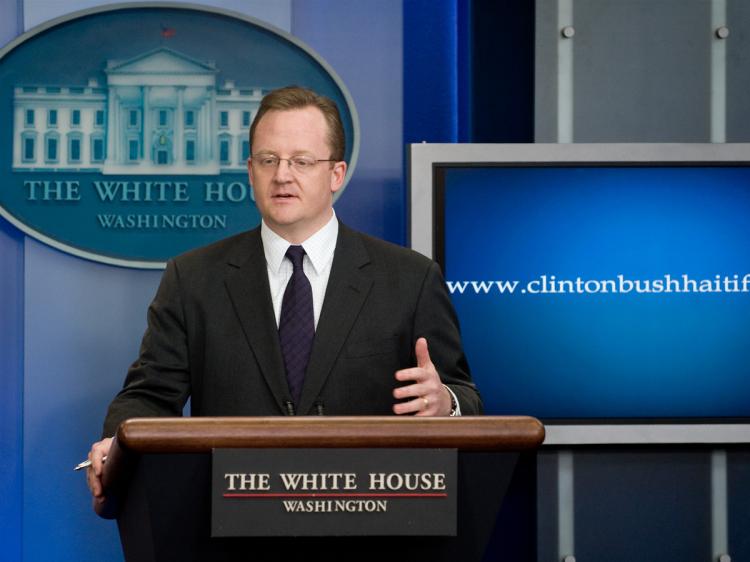White House Press Secretary Robert Gibbs has said that the Republican victory in the Massachusetts Senate election was not a referendum on health care reform but a reaction to the current economic situation.
During a press conference on Wednesday, Gibbs blamed “anger and frustration” over the economy for Republican candidate Scott Brown’s victory in Massachusetts’s special election for Edward Kennedy’s vacant senate seat.
He said that middle-class voters no longer felt secure and were looking for any kind of change.
“People are working longer, working harder, more productive, watching their wages fall … this is a wake-up call for everybody in this town,” Gibbs told the Washington press corps.
“We need to do everything positive to create an environment where the private sector is hiring again. We’ve got a lot of work to do.”
Brown’s election victory breaks the Democrats’ filibuster-proof majority in the Senate, giving the republicans 41 seats. This puts the health care reform bill in jeopardy.
Gibbs said President Barack Obama expected to start work for a scaled-back health-care reform bill while focusing on fixing the economy.
Possible Future Policy Outlined
Gibbs steered the discussion away from the Republican election victory and away from health care. Instead, he outlined some possible policy directions in what might be a foreshadowing of Obama’s upcoming State of the Union speech.
“Clearly financial reform is going to play a bigger role in what happens legislatively in the next several months,” Gibbs stated.
Gibbs said that the president had already steered Wall Street reform through the House, and would continue on that tack, “ensuring that we have honest rules of the road going forward and are not rewarding excessive risk.”
He said that another of Obama’s priorities was the formation of an independent agency that would protect consumers. This agency, along with recouping all TARP funds and creating jobs, would be “a big priority” for the president.
Some reporters questioned whether Obama had put too much energy into health care reform while the economy languished.
Gibbs emphasized that the president felt the economy was the most important issue, and that even his support for health care reform was based on economic factors.
“The president didn’t take on health care reform as a hobby, he took on health care reform because … people were losing wages to health care,” Gibbs told reporters.
“People were watching their incomes decline because their premiums were increasing. Families were struggling with the loss of health care. There were economic concerns that brought the president to dealing with health care.”






